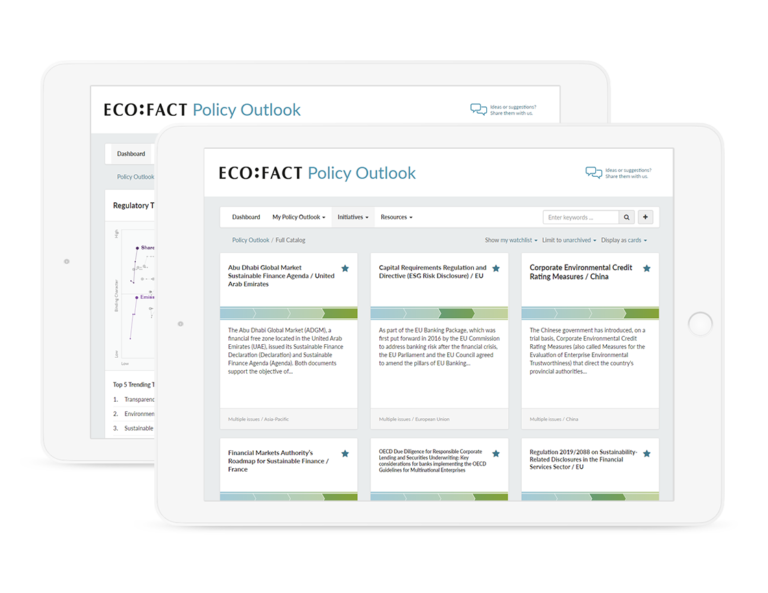Is 2030 the new 2050?
During a recent International Institute of Finance webinar, a participant asked: “Is 2030 the new 2050?” It’s a valid question.
In October 2021, Frank Elderson of the European Central Bank (ECB) issued a forceful call for action: “There is no doubt that time is running out for us to tackle the climate and environmental crises. What does this mean for banks? This means that the time for preparations is over and the time for action is now.” He continued that mere words of intent to be Paris-compliant by 2050 are no longer enough. Banks need to restructure the way they do business to back those words with deeds and ensure that they actually reach their goals. To do otherwise would mean a build-up of risk not just to the banks themselves, but to the financial system as a whole.
Elderson emphasized that banks need prudent transition plans that are compatible with EU policies implementing the Paris Agreement — and that such transition plans should contain milestones. He referred to the EU’s 2030 climate ambitions, pointing out that the ECB’s focus would be less on the distant year of 2050 and more on five-year intervals on the way to 2050. It would also make little sense for banks to commit to carbon neutrality by 2050 without having a strategy in place to reduce their exposure to carbon-intensive industries by 2030, or supporting their clients in their own efforts towards a low-carbon economy.
Another advocate for climate action is BlackRock’s CEO Larry Fink. In his 2022 letter to CEOs, he defended BlackRock’s approach to sustainability challenges (in short: it is not woke, it is capitalism). He also said that most stakeholders — including shareholders and regulators — now expect companies to help decarbonize the global economy. He describes how BlackRock has observed the beginnings of a tectonic shift in capital.
Fink believes that decarbonization will create the “greatest investment opportunity of our lifetime.” But of course, where there is upside risk, there is downside risk. Companies that do not adapt will be left behind. He also said that BlackRock asks companies to issue reports consistent with the recommendations of the Task Force on Climate-related Financial Disclosures (TCFD). BlackRock will assess companies’ intermediate targets, as well as the quality of the plans to meet them.
At ECOFACT, we like to highlight four reasons to embrace the TCFD recommendations:
- Compliance: Regulators are paying significant attention to how financial institutions manage climate risk as a financially
material risk - Risk: Climate change is already happening. Understanding how clients and institutions are affected is challenging
- Opportunity: There is a unique opportunity at hand. Benefiting from climate-related investment opportunities necessitates
business model changes. This requires time. - Governance: The TCFD recommendations offer a foundation for the effective implementation of climate-related goals.
To bring things full circle: Yes, 2030 is the new 2050, and the TCFD recommendations are your must-have accessory. Charting a path to 2050 demands an action plan that is well underway by 2030. Supervisory bodies will eventually want to see your institution’s transition plan. And the TCFD recommendations provide reliable guideposts to initiate and steer that journey in your organization.
 All posts
All posts Contact
Contact



